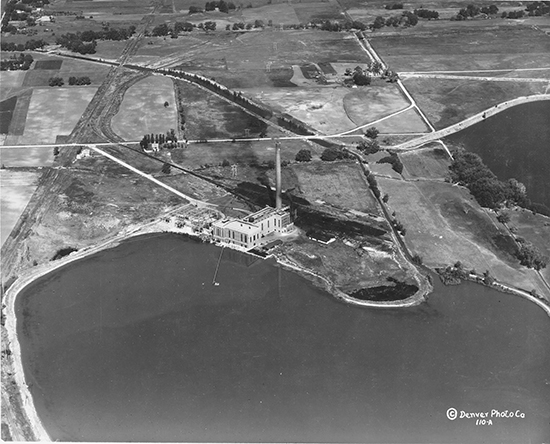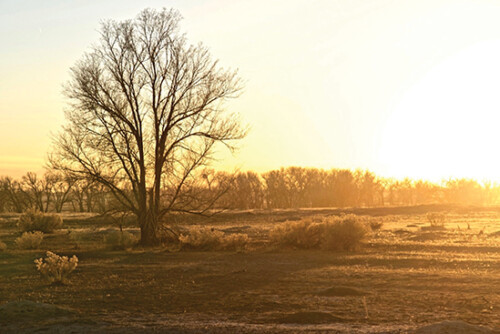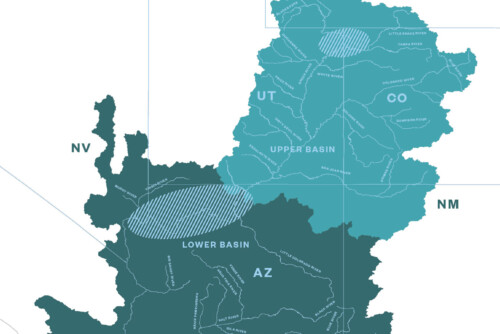
Aerial view of the Public Service Co. Valmont Plant across Hillcrest Reservoir. The photo is believed to be circa 1925-1937. Valmont Power Station closed in January 2019. Source: Boulder Historical Society/Museum of Boulder.
The West is experiencing the devastating impacts of a decades-long megadrought fueled by climate change. At the same time, our water laws have never adequately addressed all the needs of the region’s rivers. Part of the reason: We are working within an entrenched system of water rights that leaves rivers overdrawn, overtaxed, and—in some places—on the brink of bankruptcy. One way of helping people find balance with nature is to reshape how we use our scarce water resources. Cue coal-fired power plant retirements in Colorado.
Coal plants require large quantities of water to operate, mainly to cool the steam that generates power, and the water used to cool those plants soon will become available for other uses. Thanks in large part to WRA’s 30 years of leadership in decarbonizing the power sector, Colorado is now on track to retire all but one of its coal-fired power plants by 2030. Colorado’s state water plan predicts that 94,000 acre-feet of water (the amount used by a city of 500,000 each year) will be unlocked because of coal plant retirements. That presents Colorado and our region with an opportunity unlikely to occur again in our lifetime: changing the use of those water rights to satisfy multiple needs, including greater flow in rivers to support recreation, ecosystems, and habitat for fish and wildlife.
We need to be smarter about when, where, and how we use water across the West to better protect our region’s increasingly fragile rivers and streams. WRA is working with local stakeholders to reallocate coal plants’ water rights in new, innovative ways that would restore flows in stressed rivers. The new water can support fish habitat and benefit communities whose recreational economies depend on healthy stream flows.
WRA has a decades-long history of advocating before the Colorado Public Utilities Commission (PUC), which oversees the utilities that operate coal plants, as well as before the Office of the State Engineer and the Colorado Water Conservation Board, which oversee water rights and water use in the state. Last year, WRA helped secure the Colorado PUC’s confirmation that coal plant water rights are a public utility asset and that any transfer of those rights must be in the public interest. That establishes a new path forward for WRA to shape proposed water-right transfers and ensure that water rights from retiring power plants are managed for the greatest benefit to rivers and the people of Colorado.
WRA is perfectly poised to lead in this new cutting-edge and innovative space, where retiring coal plants before the PUC intersects with managing water rights before traditional water forums. It is a highly specialized space that requires WRA’s technical and legal expertise and is dependent on collaboration across multiple sectors. The benefits of navigating true through that space can be leveraged for long-lasting generational impact throughout the West.







